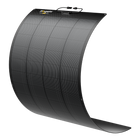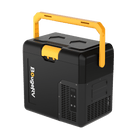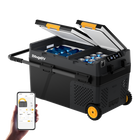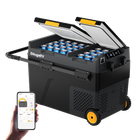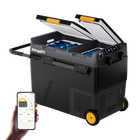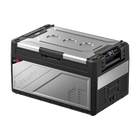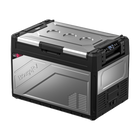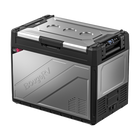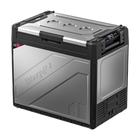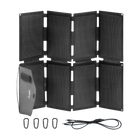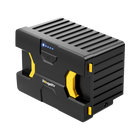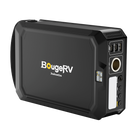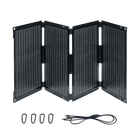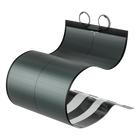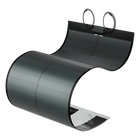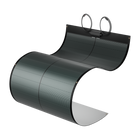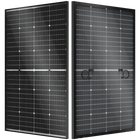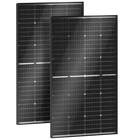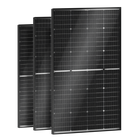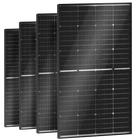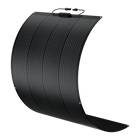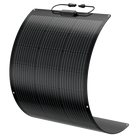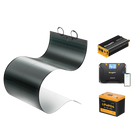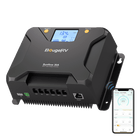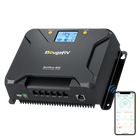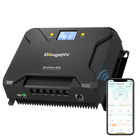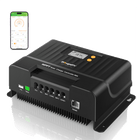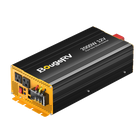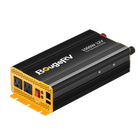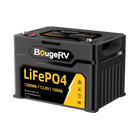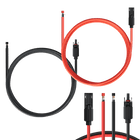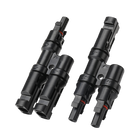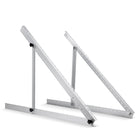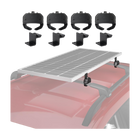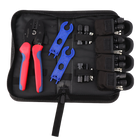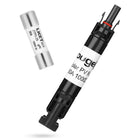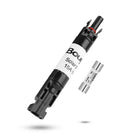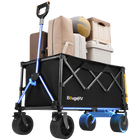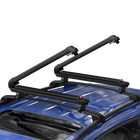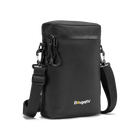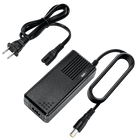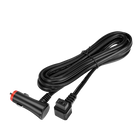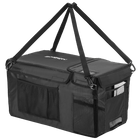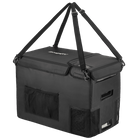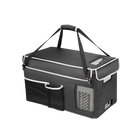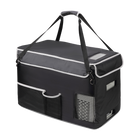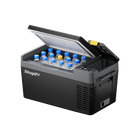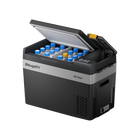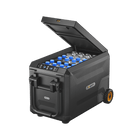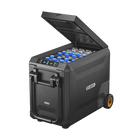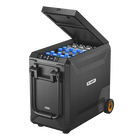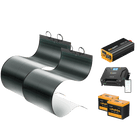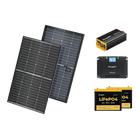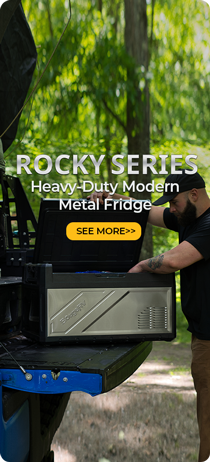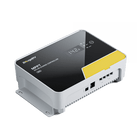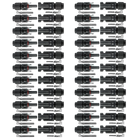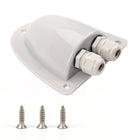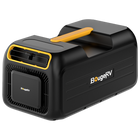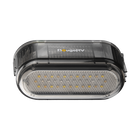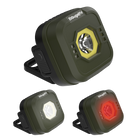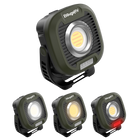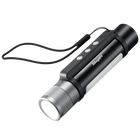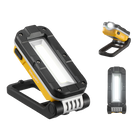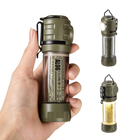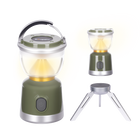Brownout vs. Blackout: Differences, Causes, And What To Do In Both Scenarios


Having a reliable source of power is essential to modern life. But even the strongest electrical grids will still experience brownouts and blackouts sometimes. That’s why it’s important to understand the differences between these two terms and the actions that you should take when either event occurs.
We created this guide to help you with that. Keep reading to learn everything that you need to know about brownouts vs. blackouts.
What Is A Brownout?
A brownout is a temporary drop in voltage in your electrical supply system. This causes lights, appliances, and other electronics to receive less power than they need to operate at full efficiency. Brownouts are named for the way that they cause normal bright lights to turn a dim brown color.
Brownouts can be caused by extreme weather events like snow and excessive heat, which often put extra stress on a region’s utility system. They can also sometimes be created intentionally to limit strain on a utility system in the hopes of avoiding a full blackout.
Brownouts can last from a few minutes to several hours or longer. It depends on what’s causing the drop in voltage in the electrical supply system and how long it takes the utility company to resolve the problem.
What Is A Blackout?
A blackout is another name for a full power outage. It occurs without warning and can last for indeterminate periods. The blackout can be caused by several reasons including the most common ones as follow:
-
severe weather;
-
excessive strain being placed on a utility grid that rises to the point of creating a critical failure in some aspect of the utility infrastructure;
-
sometimes blackouts are intentional when a utility company needs to fix infrastructure or ration power proactively to avoid a longer-term outage.
Key Difference Between Brownouts And Blackouts
The main difference between brownouts and blackouts is that your home still has access to some power during a brownout but will have no access to power during a blackout.
In other words, you can continue using some appliances at reduced power during a brownout but won’t be able to use any electrically-powered devices during a blackout.
Who Should I Call?
The first thing you should do during a brownout or blackout is determine whether the issue is isolated to your home or something your entire neighborhood is experiencing.
If everyone in your area is having the same problem, call your utility company to make sure they’re aware of the situation and are taking action to resolve it. You can sometimes check this online if your utility company has a power outage map on its website.
If you discover that the problem is only happening to you, then that’s a sign your home is having a problem with its electrical system. You should call an electrician to come out to your home and evaluate the situation if this happens.
What Should I Do In A Brownout Or Blackout?
If you’re in the middle of a brownout or blackout, you should start by unplugging all of your appliances and electronics.
Refrigerators, landline phones, microwaves, TVs, computers, landline phones, hair dryers, washers, coffee makers, and toasters can get damaged from power failures. So, unplugging all these appliances will help to avoid overloading circuits and potentially damaging your items when the power is restored.
After that, sign up for alerts with your local power company if you haven’t already. These will keep you updated as the situation progresses and let you know when you can expect the situation to be resolved and your power to be restored.
Now is a good time to begin using your portable power station if you have one. BougeRV’s portable power stations provide a reliable backup source of energy that you can use to power small appliances, keep your electronics charged, and continue accessing up-to-date information on your phones, tablets, and laptops.
You should also avoid opening your refrigerator during brownouts and blackouts, as doing so will warm the fridge up and lead to your food spoiling faster. Owning one of our 12V portable fridges is a good way to prepare for this. They run on BougeRV portable power stations and allow you to keep your perishable food fresh and ice cream hard even if the brownout or blackout lasts for hours.

It will also be important to stay away from power lines during this time, as the same issues that cause brownouts and blackouts can also damage power lines and create hazardous situations.
Finally, make sure to keep a fully charged phone and candles on hand to prepare for these situations. Having these ready to go will make it easier to navigate the brownout or blackout when it arrives.
How Do I Protect My Appliances From Brownouts?
The best way to protect your appliances during a brownout is to unplug them all. Using appliances and electronics with fluctuating voltages of brownouts can create lasting damage. But you can safely plug these things into a portable power station during brownouts and blackouts since it won’t be connected to the utility grid.
You can also take preventative action to protect your appliances from future brownouts by using surge protectors. This helps to regulate the amount of voltage that your electronics receive so they will be protected if a brownout happens and you aren’t home to unplug them.
Run Devices With Power Backup In A Blackout And Brownout
Brownouts and blackouts are frustrating because they severely limit the appliances and devices that you can use to complete work, enjoy your free time, and take care of your home.
But if you have a power backup already in place, you can continue running your favorite devices and appliances as the utility company works to resolve the problem.
BougeRV provides several portable power stations that are ideal for brownouts and blackouts. Here are a few options worth looking into as you make your preparations for these unanticipated power events.
1. FORT 1500 1456Wh Portable Power Station

The Fort 1500 is our maximum-capacity portable power station. It offers long-lasting energy for most types of devices, including small appliances. Our Fort 1500 features high-performance lithium iron battery cells that are safe to use indoors and reliable enough to deliver the power you need regardless of when or where you need it.
Thanks to its massive 2,200-watt output, you can use BougeRV Fort 1500 portable power station to run a typical home refrigerator. And you can make it through your next brownout or blackout with ease when you purchase this device.
Compared to our other models, you have to pay more for such a strong portable power station. If you’re okay with having less power, it could make sense to go with a smaller option that’s more affordable.
2. FORT 1000 1120Wh Portable Power Station

The Fort 1000 is a good middle-ground portable power station. It features an LED smart screen for easy power monitoring and delivers enough power to charge your favorite electronics or run your most essential small appliances.
For example, you can power a mini fridge for 15 hours with this model or charge an iPhone 79 times. That should be enough energy to get you through even long-lasting blackouts without ever losing access to your most important electronics.
3. 286Wh Flash300 Fast Charging Power Station

If you want a low-cost, fast-charging portable power station, the Flash300 may be for you. It’s highly compact, affordable, and can charge to a 90% full battery in under 30 minutes.
That means if you get any advanced warning whatsoever about an incoming brownout or blackout, you can charge this portable power station before it strikes your home.
The Flash300 also has multi-device functionality. You can use it to charge up to 10 devices at the same time, so the whole family can keep their most important electronics charged safely.
4. NCM 1100Wh Portable Power Station

You can also take a look at BougeRV NCM 1100Wh portable power station. It's compact and portable and can be charged using either AC wall power or a 12V DC car socket.
This makes it not just a reliable source of backup power for home but also one that you can bring with you to keep your electronics charged whenever you venture off-grid. It’s perfect for camping, tailgating, and other outdoor activities.
Conclusion
Both brownouts and blackouts involve a loss of power to your home. Brownouts may leave you with some power, but it’s still not a good idea to use electronics during them because the fluctuating grid voltage can create permanent damage.
If you want to get prepared for your next blackout or brownout, purchasing a portable power solution may be your best option.
BougeRV’s portable power stations can keep your electronics and small appliances powered throughout lengthy brownouts and blackouts, so you can stay in touch with the world and continue using your favorite devices even when your home is experiencing power issues.
FAQs
1. Why is it called a brownout?
The name brownout comes from the way that bright lights dim to a dull brown color when these events occur.
2. Should you unplug appliances during a brownout?
Yes, you should unplug your appliances during a brownout even if they’re still receiving enough power to run. The fluctuating voltage can create lasting damage that may break your favorite items and force you to purchase replacements sooner than necessary.
3. What do you unplug during a brownout?
You should unplug all of your appliances and electronics during a brownout. Even small electronics can be damaged by these events.
4. Can brownout damage the refrigerator?
Yes, a brownout can damage your refrigerator by harming its motor. If you don’t unplug your fridge, you might have to purchase a new one sooner than you expect.
5. Is it safe to run appliances during a brownout?
It won’t harm you or your family to run appliances during a brownout. But doing so can damage your appliances and cause them to break down faster.






